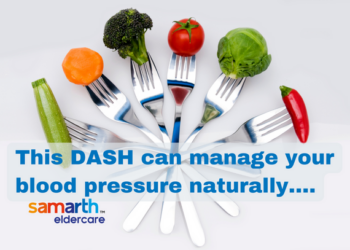As compared to the West, we Indians are perhaps, much better off in the supplement scenario. It appears that supplements, especially multivitamins are very popular in the US. It is said more than half the US population takes some sort of supplement or the other. It is not an ideal situation and it is said that people are trying to replace nutrients through food with supplements. It boils down to an inherently unhealthy diet. However, in India, the case is perhaps on the other spectrum. It means that many of us do not even know what deficiencies exist and do not take any supplements even when it is helpful.
When the pandemic hit, we realized that nutrients and immunity are interlinked closely. Also, many of those affected were provided with multivitamin and zinc tablets to sustain themselves through the recovery period. While there has always been a raging debate on supplements vs food intake, we try to take a look at the pros and cons of this topic. Are supplements a much-hyped PR activity of the pharma industry? If we follow a healthy and balanced diet, can we avoid the supplements totally? Is it good to take them or should they be avoided? Read on to find the answers to a few of these posers we most often encounter.
What kind of deficiencies prompt supplements?

Join Now >
It’s a known fact that the human body needs various nutrients to sustain itself healthily. The various parts of our body and the crux of our existence, the cell, needs fuel to sustain itself. It needs various minerals and Vitamins, each of which helps it perform certain functions. For example, Iron is important for red blood cell generation, Calcium and Vitamin D for bone and muscle strength, Vitamin C for a whole host of immunity-building activities and so on.
When the body does not get these nutrients in the required quantities, it affects the various parts. This manifests in many ways through symptoms, some of which are easily diagnosable. But, at times, they can be confusing as well, as some symptoms can occur for multiple issues. Hence, you wouldn’t know the underlying reason for sure, unless some specific clinical tests are run. But the problem is that many of these symptoms are commonplace in old age. Hence, it is rare that people get themselves tested for fatigue, or losing eyesight, aches and pains, etc.
How does my body use the nutrients?
The food that we eat goes through various processes in our digestive system. This system efficiently separates the various nutrients needed by the body and discards the rest. The waste is eliminated from the body along with any excess nutrients! It means that even if you intake more nutrients, including supplements, it is not going to help you and will get eliminated. So, for sure, it does not help to blindly consume supplements as it does not help is in any way.
However, it is also true that the body does need a minimum quantity of all these nutrients. And, in normal circumstances, we are expected to provide these through our daily food intake. This is what we refer to as a balanced diet- one that covers all possible nutrient intake on a regular basis. So, how to balance this out?
Why natural foods may be better?
There a few benefits of eating a balanced diet and gaining the required nutrients in a natural way. One of the most endearing of these, of course, is the taste. It is far more palatable to eat an Orange than a Vitamin C supplement! This would be true for all supplements.
Also, we know that our digestive system weakens a bit as we age. Even otherwise, it is much easier for it to digest natural minerals and Vitamins from food rather than supplements. Therefore, it is better to ensure a good supply of these nutrients through our daily diet than to pop pills.
The synthetic nutrients aka the supplements do not have the same natural formation as in natural food. Hence, there could be some body reactions that may not be known and some parts of it may remain undigested. Even though the waste is excreted out of our body, at times, residues from the supplements remain in our bodies. If supplements are taken without consulting a doctor, and if the daily dietary intake is sufficient, then it can lead to an excessive build-up in the body. This can cause some serious health issues in the long run.
Also, when you eat natural foods, it is a combination of nutrients going in together. This helps in many ways as they may work in tandem and not in isolation as in the case of supplements. Also, natural foods have fibre, antioxidants, healthy fats, plant and animal compounds, fatty acids, etc. all of which aid in the process.
A lot of scientific evidence suggests that the benefits of supplements are inconsistent, or weak. This is more so for healthy people who have no issues. There is simply no case for them to take supplements, just because they are aged. At most, the possible supplements for the elderly, under a doctor’s guidance are Vitamin D and Vitamin B12.
The bottom line is to ensure that you have a balanced fresh diet of natural foods every day. However, one needs to watch out for any symptoms that do not seem to go away or become progressive. It could be a deficiency that needs to be addressed if required through supplements. Monitoring health parameters periodically is a good way of ensuring that you keep things in control.










